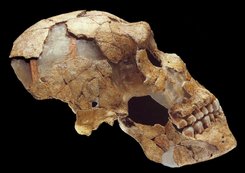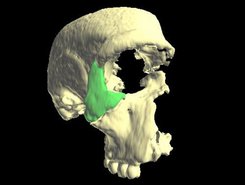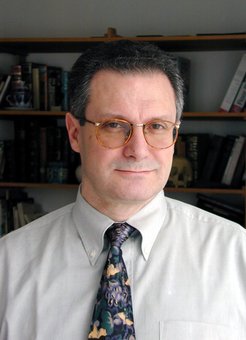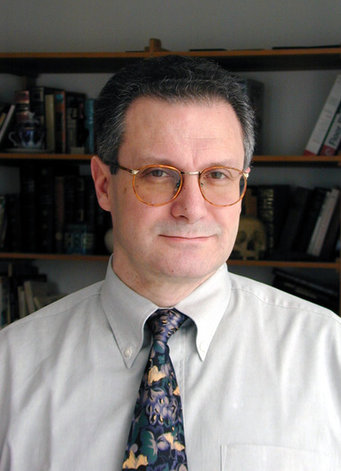Trip to our Ancestors
Paleoanthropology and -archaeology becomes another main focus at the Max Planck Institute for Evolutionary Anthropology in Leipzig
Led by the renowned French Anthropologist Prof. Jean-Jacques Hublin, a new Department of Human Evolution started its work at the Max Planck Institute for Evolutionary Anthropology on January 1 2004. Before coming to Leipzig, Hublin was based at the Laboratoire d'Anthropologie, Bordeaux University in France. Researchers in the new department study the biology, behaviour and cultures of fossil hominoids. This field of study - which has made much progress over the last few years - will not only be a significant enrichment for the Max Planck Institute for Evolutionary Anthropology but also for the Max Planck Society in general.

The anthropologists in the new department are interested in basic questions that many of us have considered, such as "What makes humans so unique among the primates?" and "When and how did we become what we are now?"
An important focus is on international field projects. One key project, led by Dr. Zeresenay Alemseged, who came to Leipzig from the Institute of Human Origins at Arizona State University, has already started in Ethiopia. The fossils recovered from this site are of some of our oldest hominoid ancestors, over 3 million years old. Additional excavation projects are planned for different time periods in both Europe and North Africa to study both Neanderthals, as well as the first anatomically modern humans. The archaeological material excavated from these sites will be analyzed in the laboratories in Leipzig.
State-of-the-art medical examination techniques, such as X-ray techniques and the latest three-dimensional graphics software, enable the scientists to make virtual reconstructions of fossil remains. This area of research is called "Virtual Palaeoanthropology", a discipline that helps retrieve and reconstruct fossil fragments that are impossible to study using conventional methods, and which allows quantitative analyses of internal anatomical structures. A goal of this research is to explore the way hominoid evolution developed and also the growth patterns of the various hominoids, both extinct and living.

Another key area of interest is in determining the growth patterns of hominoids. We know that our ancestors’ individual development proceeded at different speeds; especially in the duration of childhood, i.e. the "main learning period". Our ancestors’ individual life histories can - to a certain degree - be reconstructed and studied by analyzing microstructures of fossil tooth and bone fragments. This knowledge, and above all the pace at which the human brain developed - in relation to the growth of the body - is important in order to understand unique human abilities and their development.
The Department of Human Evolution is also interested in the field of archaeological science and specifically bioarchaeology. Prof. Mike Richards will analyze the chemical consistency of fossil bones and teeth from which he and his team can draw conclusions about the environment and the behaviour of past humans and animals. Isotope analyses, for example, can provide information on dietary habits, migrations, as well as adaptations to different climates. Additionally, this group will utilise other methods from geochemistry to determine the age of fossil material, as well as the sites of interest to the department, in a sub-discipline called ‘geochronology’.

Why, however, did Prof. Jean-Jacques Hublin come from Bordeaux to Leipzig to build up a new Department at the Max Planck Institute for Evolutionary Anthropology? Primarily, says Hublin, because the Max Planck Society offers its Institutes excellent possibilities to practise modern science and because a project like this can only be established and work successfully in an international context and with adequate financial means. "But also my encounters with the directors, scientists, technicians and students of the Max Planck Institute for Evolutionary Anthropology convinced me that something completely new is being created with much enthusiasm in the midst of "old Europe", says Hublin.
The Max Planck Institute for Evolutionary Anthropology was founded in 1997. The institute's aim is to investigate the history of humankind with the help of comparative analyses of different genes, cultures, cognitive abilities, languages and social systems of past and present human populations as well as those of primates closely related to human beings. The collaboration of the various departments at one institute is designed to lead to new insights into history, variety and abilities of the human species. The institute unites scientists with various research interests who are concerned with human evolution seen from an interdisciplinary perspective. At present, the institute comprises five departments and two junior scientists groups.


